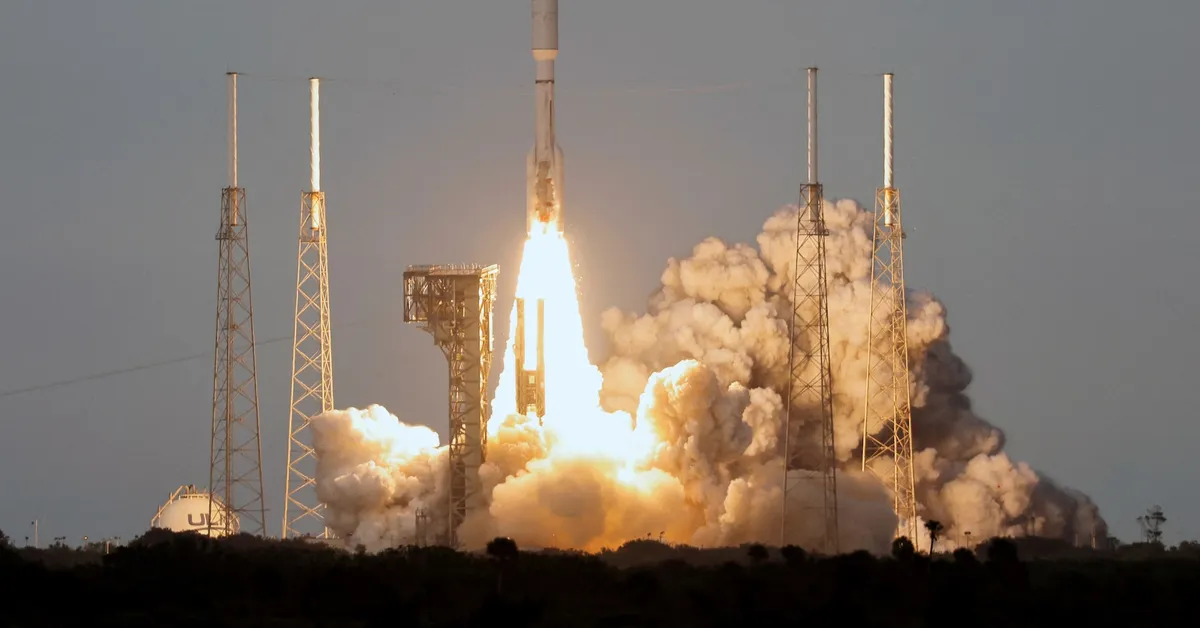
Amazon has officially kicked off the deployment of its long-awaited broadband internet constellation, Project Kuiper, by launching the first 27 satellites into space from Florida on April 28. This significant milestone marks the beginning of a robust initiative aimed at providing global internet access that will directly compete with SpaceX's Starlink, which has already established a strong presence in the satellite internet market.
The satellites launched are the first batch of a total of 3,236 that Amazon plans to deploy into low-Earth orbit as part of its ambitious $10 billion investment in Project Kuiper. The project, which was first unveiled in 2019, aims to deliver high-speed broadband internet services to consumers, businesses, and governments worldwide. The launch had been anticipated for over a year, with Amazon originally hoping to initiate the deployment in early 2024.
Despite the delays, Amazon is under pressure from the U.S. Federal Communications Commission (FCC), which has mandated that the company must deploy half of its satellite constellation—1,618 satellites—by mid-2026. Analysts speculate that Amazon may need to request an extension due to its slower-than-expected launch timeline.
Following the launch, Amazon is expected to confirm initial contact with all 27 satellites from its mission operations center located in Redmond, Washington. If everything goes according to plan, the company anticipates starting to deliver broadband services to customers later this year. United Launch Alliance (ULA) CEO Tory Bruno has indicated that the company could carry out up to five additional Kuiper missions within the same year, further accelerating the deployment process.
In a 2020 filing with the FCC, Amazon indicated that it could begin offering services in select northern and southern regions with just 578 satellites operational. As more satellites are launched, coverage will progressively extend towards the Earth's equator, enhancing the reach of the Kuiper network.
Project Kuiper represents Amazon’s ambitious entry into the satellite internet sector, a market that SpaceX has dominated with its Starlink service. Since 2019, SpaceX has successfully launched over 8,000 Starlink satellites, and the company has been executing its deployment at an impressive rate—conducting approximately one mission per week.
Elon Musk's SpaceX has already amassed over 5 million internet users across 125 countries, significantly disrupting the global satellite communications landscape. The company has also attracted interest from military and intelligence agencies seeking to leverage Starlink for sensitive national security applications.
Amazon's Executive Chairman, Jeff Bezos, remains optimistic about Project Kuiper's potential to compete with Starlink. In a recent interview, he expressed confidence in the insatiable demand for internet services, stating, "There's room for lots of winners there." Bezos predicted that both Starlink and Kuiper could find substantial success in the evolving satellite internet market.
In 2023, Amazon unveiled its innovative consumer terminals for Project Kuiper, which include an LP vinyl record-sized antenna designed to communicate with satellites in orbit, as well as a smaller terminal comparable in size to an e-book Kindle device. Amazon anticipates manufacturing tens of millions of these devices, pricing each unit at under $400.
In preparation for the Kuiper deployment, Amazon secured a remarkable 83 rocket launches from various providers, including ULA, France's Arianespace, and Blue Origin—Bezos's own space venture. This deal represents one of the largest launch agreements in the industry, positioning Amazon for a robust entry into the satellite internet arena.
As Project Kuiper gears up for its next phases, the competition between Amazon and SpaceX is likely to intensify, shaping the future of global broadband internet access.